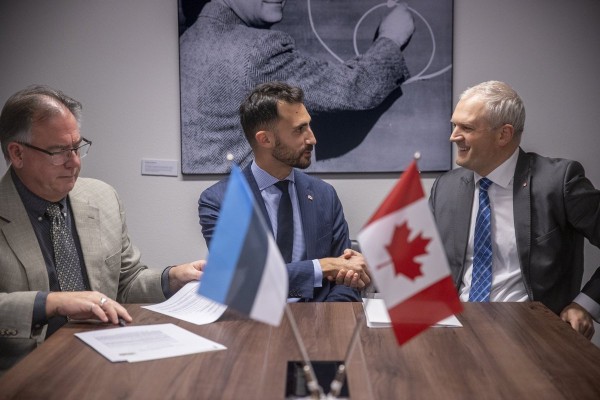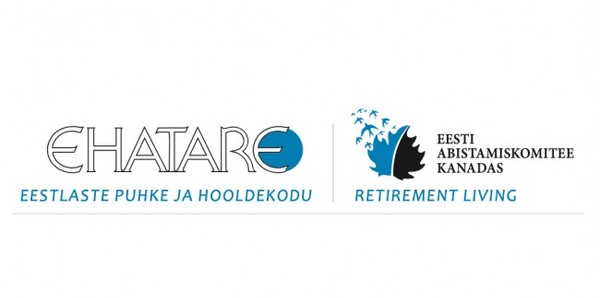“Ask not what your country can do for you, but what you can do for your country”. It’s become a well-worn cliché since this exhortation was first used 50 years ago. But it hasn’t lost its immediacy. It’s this type of motivation the Estonian Central Council in Canada (ECCC) expects from candidates who intend to participate in the ECCC general elections this fall.
The first generation of Estonians arriving in Canada rolled up their sleeves and opened their meager wallets to establish the infrastructure of community houses, churches, summer camps and institutions needed to nourish a culturally thriving community.
Subsequent generations have enjoyed the benefits of that which was created over 50 years ago and have the perspicacity to use the legacy wisely. And what has the ECCC to do with the above? It’s inviting people to make their own contribution to a community which has provided the activities and resources in making their life more purposeful.
Why is the ECCC even necessary? For sixty years the ECCC (EKN in Estonian) has been recognized by all levels of government and similar national organizations of other ethnic communities as being the “voice of Canadians with Estonian heritage” in Canada. Its main objective before Estonia regained its independence in 1991 was to keep the issue of Estonia’s captivity by the USSR and its right to self-determination on the political agenda of the day. Lobbying at all appropriate establishments and forums, and raising public awareness was its prime activity. Often this was through co-ordinated efforts of the Baltic Federation, the Black Ribbon campaign and others. These networks and partnerships are still active and the search for justice and historical truth for the land of our heritage is still on the agenda.
Since the restoration of Estonia’s independence however, the main goals of the ECCC have shifted dramatically. The ECCC can fulfill the role of our community’s “parliament”, where elected representatives can, on a continuing basis, raise crucial issues affecting the future of the community, its possible growth or decline. An on-going discourse amongst people who are committed can often lead to a consensus on ways to proceed. For newly elected, motivated members of the ECCC, the milieu definitely offers fulfillment and a sense of purpose.
The ECCC is a founding member of the Estonian World Council, a co-ordinating body that meets at least annually at various venues including Estonia, to find a common understanding and a unified voice in facing those issues crucial to Estonians abroad.
An issue (amongst several)) that elicits genuine emotions is the question of the Estonian language, its importance, its utility, it being perceived as a barrier to helping the community grow in numbers. Directly related to this is the question of inclusiveness, the community’s need to provide real meaning and identity to individuals (be they ethnically Estonian or not) whose insufficient language skills make it awkward and uncomfortable to participate as an acknowledged equal. Yet it was obvious from a recent public forum, that the Estonian language is still the feature that defines our community and the glue that helps hold it together. A vexing dilemma for which consensus has yet to be found.
The process for becoming pro-active, involved and meeting new challenges is easy. Deadline for submitting nomination forms is October 7th. They can be picked up at the ECCC office at Estonian House, 958 Broadview Avenue, Toronto M4K 2R6. Tel. 416 465 2219, . The nomination form must have three references. Include $5.00, a passport-size photo and a 50 word bio.

“ask what you can do…”
Arvamus
TRENDING
























